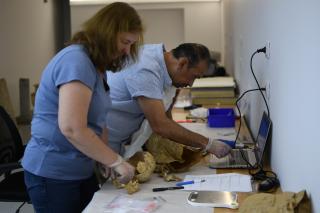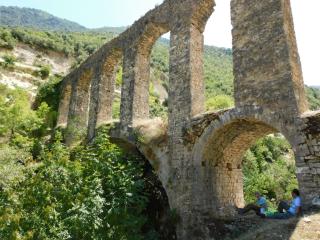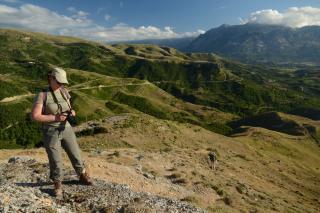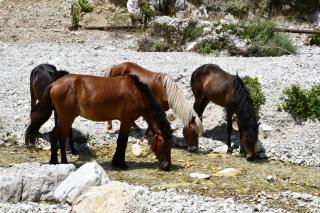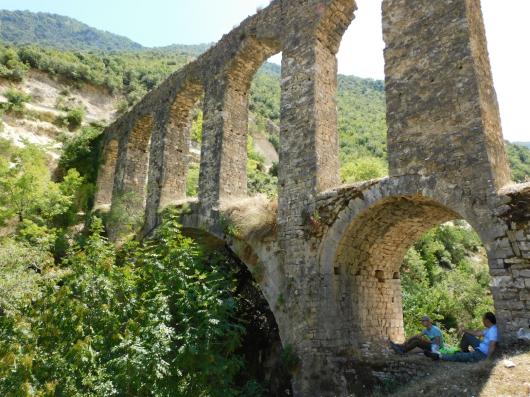
Research of Czech Acheologists in Southern Albania
05.11.2020 / 01:57 | Aktualizováno: 02.02.2024 / 12:36
For some years, experts from the Department of Archaeology and Museology at Masaryk University have been woking in Albania.
For some years, experts from the Department of Archaeology and Museology at Masaryk University have been working in Albania.
Larger projects were unfortunately cancelled this year due to COVID-19 restrictions. Nevertheless, at least a modified plan was implemented. In cooperation with Mr.Ulsim Toto, anthropologist from the National Archeological Institute in Tirana, the experts collected samples of skeletal remains from the burial site of ancient Oricum. The subsequent extraction of skeletal collagen will lead to determination of prevailing diet of the persons of ancient times and will tell much of their origin.
In southern Albania in the region of Tepelene the team dealt with 3D documentation of the so called Ali Pasha aqueduct near Bençë village. The role of the aqueduct is part of a larger project which studies efficiency of small water tanks in regions where the main and only source of water is and has been rainwater. These ancient systems were very efficient and might serve well even nowadays.
In the framework of a broader research of the region the team visited Hellenic cities of Amantia, Antigonea and Lekël location and many others.
The project has been enriched by another scientific goal which is the research of the origin of Albanian mountain horses. The team collected basic information and material for DNA testing and primary findings were published at the magazine Equitation.
Despite limitations in this year ´s activities, the experts have collected enough information, data and material which open a wide range of perspective research themes whose solution can help to resolve serious problems of the current society. Archeological research and follow-up projects will continue in Albania even in the following years.





